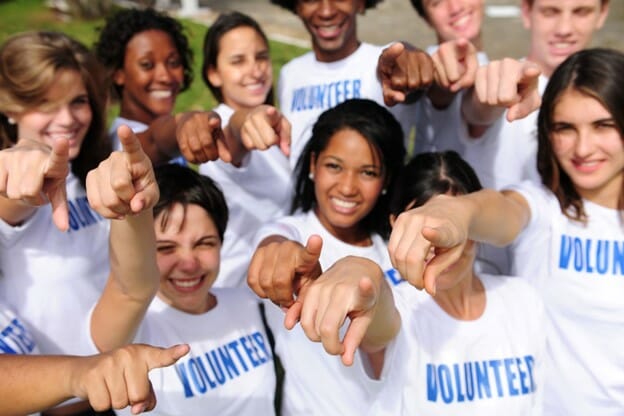How to Foster Equity in Volunteerism

When people listen and learn to better understand the root causes of issues they care about, the communities and personal experiences of those impacted by the issue, and the work that is already being done, they can find better solutions and honor humanity in the process. Working on and building these skills may seem like a superpower, but how might organizations engage in a similar process? We reached out to Karmit Bulman, Esq., executive director of the Minnesota Association for Volunteer Administration (MAVA), to hear more about the important work they are doing as an organization to listen and learn in the realm of building more equity in volunteerism and services.
What made your organization interested in focusing on listening and learning from the communities you serve?
The Minnesota Association for Volunteer Administration (MAVA) contends that structural racism is widespread within the processes and systems by which most organizations engage volunteers. Most entities engaging volunteers have little understanding of why their volunteers do not reflect the racial diversity of the communities they serve and have not devoted resources to solving this problem. Many neighborhoods supported by nonprofits are Black, indigenous or people of color (BIPOC), yet volunteers often are primarily white. This creates multiple problems.
First, those receiving support do not have a voice in the organization regarding how support is offered. Second, support is delivered by people who do not look like community members or have the lived experience of being BIPOC. This is a disservice to the community as interactions are mostly transactional and do not foster relationships and understanding.
Volunteerism in BIPOC communities is more relationship-based, flexible and driven by pressing community needs. It is clear to MAVA that we have work to do.
Tell us more about the communities you partner with and some of the challenges you face.
Minnesota has some of the worst racial disparities in areas of social services and volunteerism nationally. We are failing our fastest-growing population of residents with a direct impact on outcomes for all residents. The organizations most in need of MAVA services now are those whose volunteers are providing essential services to those impacted by COVID-19 and racial injustice. Volunteers play an essential role in delivering services and support to communities throughout Minnesota.
MAVA members and organizations across the United States have sought MAVA support in addressing both behavioral and systematic racism in volunteer systems. In order to address the ever-growing demand for services, it is essential that these organizations remove barriers to equitable volunteerism and that BIPOC communities are included inside the nonprofit structure in addition to the informal volunteer work many BIPOC are already leading.
How has MAVA been addressing equity in volunteerism so far?
MAVA has approached racial disparities in volunteerism in a number of ways. We have formed task forces, done research and written reports and articles. We have also hosted many workshops, conferences and “Do Better Together” events to raise awareness of structural racism in volunteerism and to help organizations dismantle racial inequities.
At this juncture in our work, we are engaged in an activity that might be the most important one of all: listening. MAVA’s work around asset-building opportunities for marginalized communities through volunteerism has thus far been driven by our committed and diverse task force; we recognize that we now need to seek out a wider array of community voices to evaluate the systems in place and MAVA’s current approach to change.
How do listening and learning help with these efforts?
Listening to those with lived experience from BIPOC communities is essential. By listening, we will be able to base our future work on a key tenant of furthering equity: to first and foremost engage people from the communities most affected by the problem. We have done that through our Task Force and through individual interviews, but we recognize that we need to convene evaluative community focus groups to gain a greater understanding of many perspectives.
MAVA has never had more people responding to our work on racial equity and asking for more research and training. This work is critical to creating a culture of equity at area nonprofits. Volunteers must reflect the communities they are serving and this cannot happen unless systemic racism is actively and intentionally dismantled within the organizations that serve our communities. MAVA has always known that listening is the first step needed before taking action.
In 2020, MAVA put out a call for community members to participate in the listening session using thoughtful language. Learn more about MAVA’s listening sessions, and for a list of their upcoming webinars and events, including sessions that focus on racial equity in volunteerism, visit the MAVA website.
